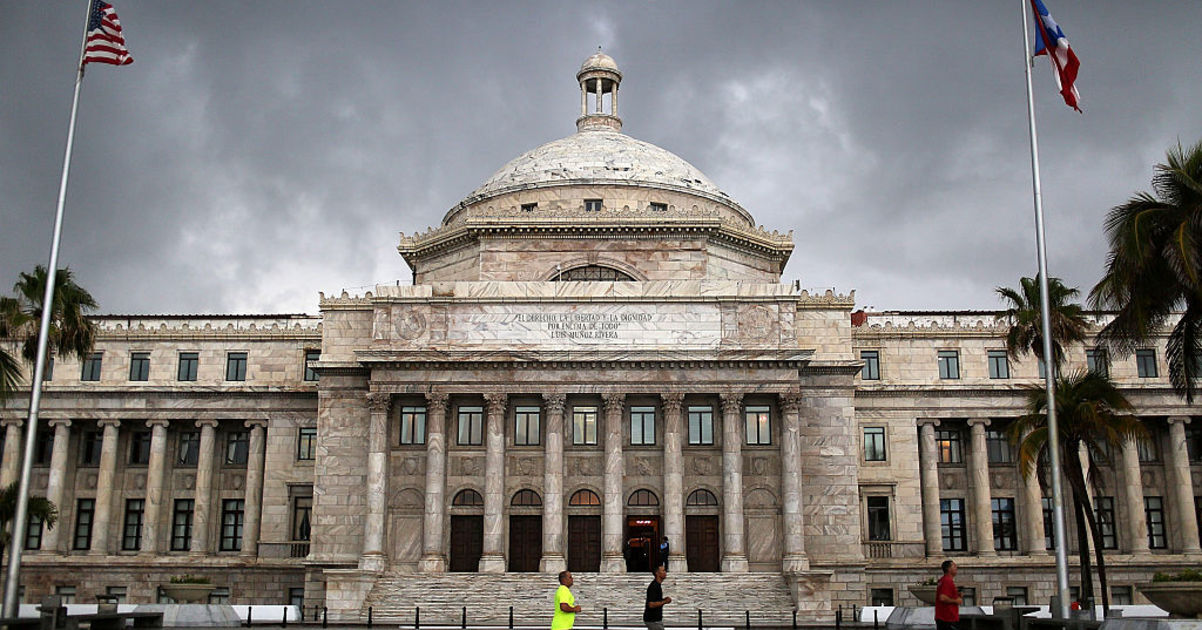Advocates are calling on the governor of Puerto Rico to veto a bill they say would permit widespread discrimination against the LGBTQ community in the name of religion.
PC1018, known as the “The Puerto Rico Religious Restoration Act,” is strongly similar to legislation like Indiana’s controversial RFRA law. Authored by Carlos “Johnny” Méndez, María M. Charbonier, and Guillermo Miranda of the Puerto Rico House of Representatives, it would allow individuals who cite sincerely held religious beliefs to deny services to queer and transgender people.
The bill has already passed the commonwealth’s House and Senate. It is currently in the Legislative Conference Committee and will soon be sent to Puerto Rico Governor Ricardo Rosselló for approval.
LGBTQ leaders say its passage would set a harmful precedent for the commonwealth.
“This legislation would allow a dangerous license to discriminate, putting LGBTQ people and other marginalized communities directly in harm’s way,” said Sarah Warbelow, HRC Legal Director. “Leaders in Puerto Rico should focus on bringing its citizens togethernot on measures that would cause harm and discrimination.”
“This bill is under the ‘guise’ of religious freedom, but is clearly and purposefully a license to discriminate against LGBTQ people,” says Tarah Demant, Director of Gender, Sexuality, and Identity Program for Amnesty International. “This amounts to nothing more than state-sanctioned discrimination. Discrimination in any form is not only wrong, it violates our most basic human rights.”
Local advocates in Puerto Rico say it would be an additional attack on a community that’s currently struggling to rebuild after the devastation of Hurricane Maria.
“Our communities are suffering and fighting to stand up,” Pride Puerto Rico Chair Luis Conti says in an email statement provided to INTO. “This is a battle we cannot fight alone. With the vast majority of our people with no water or electricity, even with some limited internet access, most of them don’t even know what is happening.”
Calling the legislation “awful, vague, and brutal,” Conti called on international human rights advocates to help LGBTQ people in the commonwealth fight this attack on their community.
Should the bill pass, it could lead to massive fallout for Puerto Rico.
Indiana’s own Religious Freedom Restoration Act, passed in 2015, led to massive boycotts against the state. After the bill was signed into law by former Gov. Mike Pence, economic analysts estimated that the backlash caused $60 million in lost revenue for the state. Several major conventions scheduled in Indiana pulled out in protest of the bill.
The RFRA law was subsequently “fixed” to remove anti-LGBTQ provisions.
LGBTQ advocates in Puerto Rico have already begun mobilizing opposition to PC1018 under the hashtag #vetoaldiscrimen on Twitter.
The commonwealth, as local activists point out, simply can’t afford another battle while many Puerto Ricans are still fighting for basic resources. After making landfall in September, Hurricane Maria caused as much as $95 billion in damage, and President Donald Trump has all but refused to help the country recover from the decimation.
While some gay clubs in Puerto Rico have reopened to give LGBTQ people a safe haven and a community during a time of need, a bar in San Juan was attacked with a Molotov cocktail in September.
“This bill is under the ‘guise’ of religious freedom, but is clearly and purposefully a license to discriminate against LGBTQ people,”says Tarah Demant, Director of Gender, Sexuality, and Identity Program for Amnesty International. “This amounts to nothing more than state-sanctioned discrimination. Discrimination in any form is not only wrong, it violates our most basic human rights. The governor must veto this bill and stand with all Puerto Ricans who want nothing more than to be fairly treated.”
Don't forget to share:
Help make sure LGBTQ+ stories are being told...
We can't rely on mainstream media to tell our stories. That's why we don't lock our articles behind a paywall. Will you support our mission with a contribution today?
Cancel anytime · Proudly LGBTQ+ owned and operated
Read More in Impact
The Latest on INTO
Subscribe to get a twice-weekly dose of queer news, updates, and insights from the INTO team.
in Your Inbox













